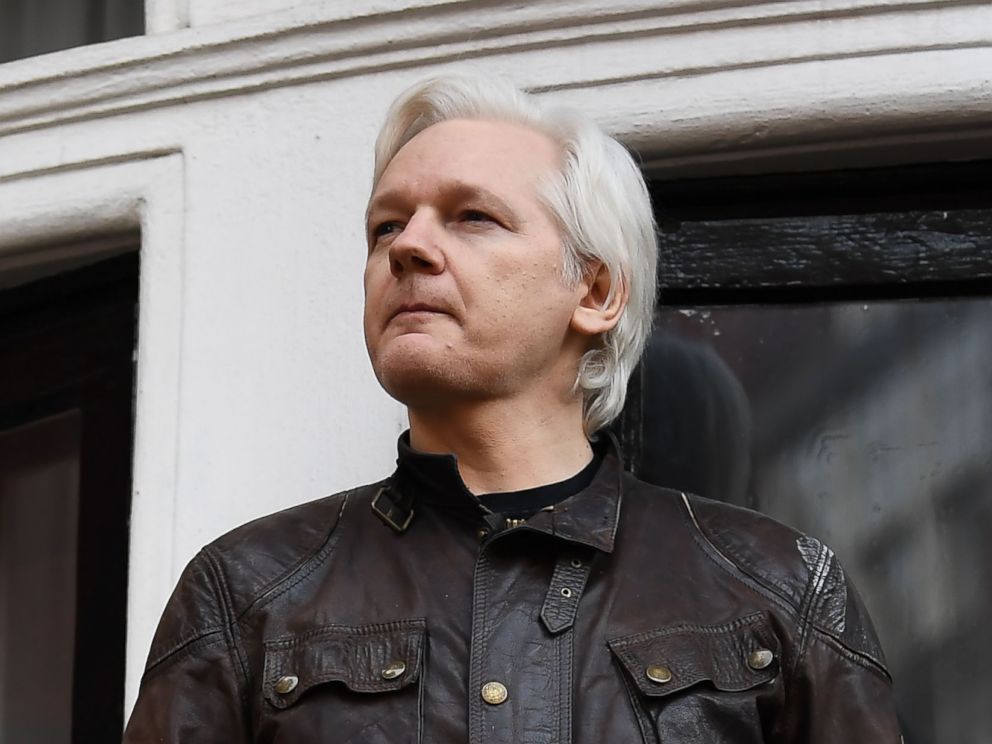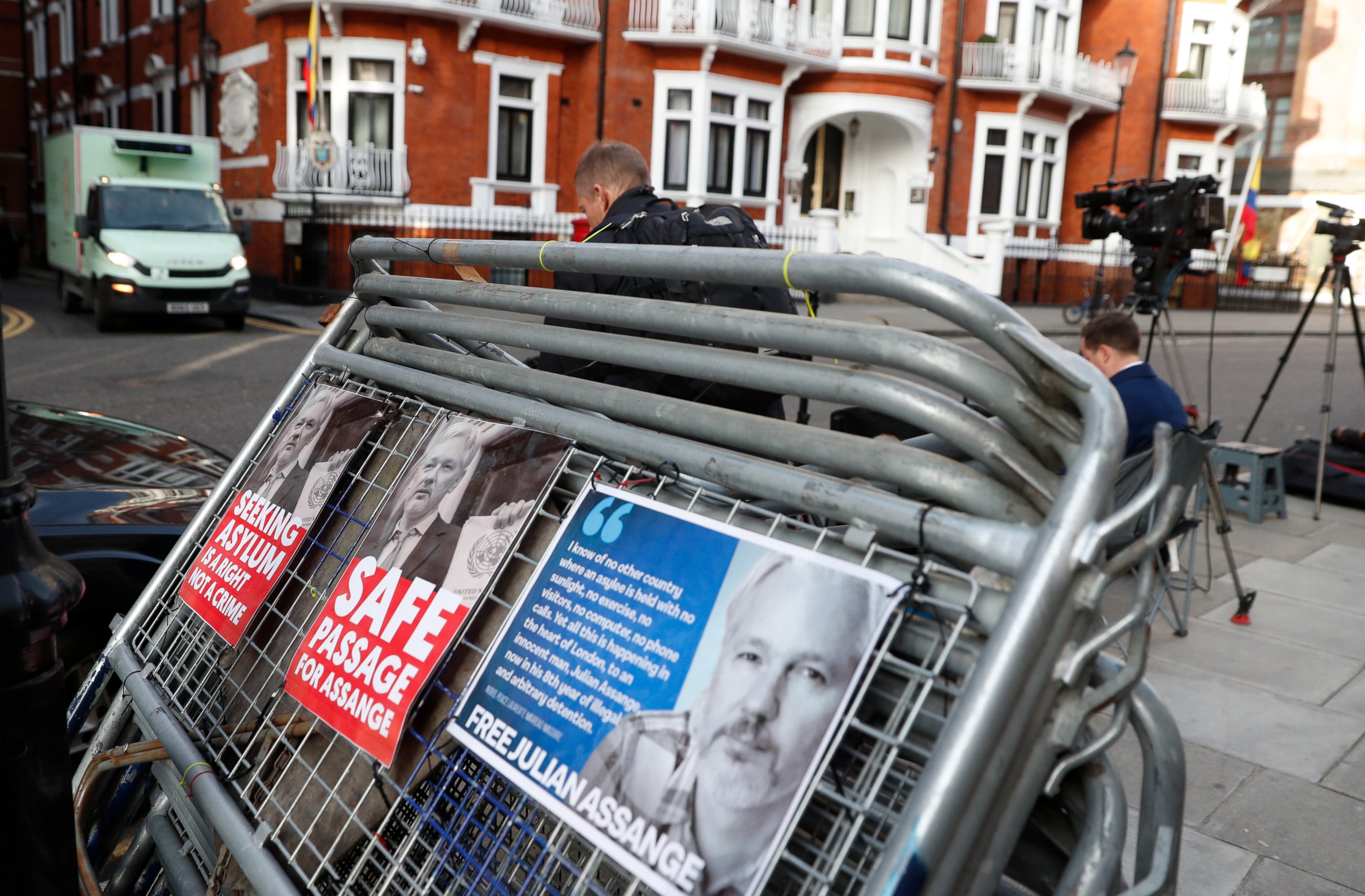Julian Assange arrested after lengthy record of controversial disclosures
WikiLeaks has published some of the world's most-closely guarded secrets.
Charges unsealed Thursday against WikiLeaks founder Julian Assange focus on allegations of a computer hacking conspiracy dating back to 2010, but that episode is just one of many for the prolific whistleblower and the website he founded.
Assange garnered international attention when WikiLeaks began publishing some of the world's most-closely guarded official secrets leaked to them more than a decade ago, but he became embroiled in a global political scandal as special counsel Robert Mueller's investigators probed whether WikiLeaks had any role in collaborating with Russian military intelligence to disseminate hacked emails that were damaging to Hillary Clinton's campaign shortly before the 2016 presidential election.
In a federal grand jury indictment of three Russian companies and 13 Russian individuals the special counsel secured in July, which refers to WikiLeaks as "Organization-1," the organization is accused of communicating with Russian intelligence officers posing as hacker persona "Guccifer 2.0" about a politically-timed publication of hacked emails from the Democratic Party.

Assange's eviction from the Ecuadorian embassy comes on the heels of Ecuadorian President Lenin Moreno's recent assessment that Britain has provided sufficient guarantees for Assange to leave the Ecuadorian embassy in London, which has been housing Assange since 2012.
During a radio interview in December, Moreno stated that the Ecuadorian government has received written assurances from the U.K. government that Assange would not be extradited to face the death penalty abroad.
In March, the Ecuadorian Embassy cut off Assange's communications after he tweeted about Britain's accusation that Russia was behind the Salisbury nerve agent attack against a Russian ex-spy. The embassy restored his access in October under the condition that Assange refrain from engaging in "any activities that could be considered as political or interfering with other nations' affairs."

The new protocols highlighted what an increasingly unwelcome guest Assange had become. His legal team had said Moreno wanted political cover for eventually stripping Assange, whom Moreno called a "hacker," of his Ecuadorian citizenship and asylum. His lawyers predicted that if he were to be expelled from the embassy, he would face immediate arrest by British police and that such an arrest could pave the way for his potential extradition to the United States.
In November, newly discovered court documents filed by federal prosecutors from the Eastern District of Virginia revealed that Assange appears to have "been charged" with a federal crime.
The revelation of the mystery case was accidentally included in documents filed in an unrelated sex crimes case when the government filed a motion to seal a criminal complaint in August. ABC News sources said a prosecutor erred by using a document related to Assange still under seal as a template for the case in Virginia which had nothing to do with the WikiLeaks founder.
Assange is not the defendant in the Virginia case, but while arguing for the specific details of the ongoing case to remain sealed, Assistant U.S. Attorney Kellen Dwyer apparently failed to delete all references to Assange in the document about the unrelated case and made mention of " the fact that Assange has been charged."
At the time of the prosecutors' error in mid-November, it was not immediately clear what Assange had been charged with, but the U.S. government has been investigating WikiLeaks for publishing military secrets and sensitive diplomatic cables since 2010.
In response to the revelation, Assange's lawyer in Washington, Barry Pollack, released a statement to ABC News on Nov. 15.
"It is inexplicable that the government would file in a public document a claim that Mr. Assange has been charged when no notice has been given to Mr. Assange," Pollack said. "The government should not be bringing criminal charges against someone for publishing truthful information."
Meanwhile, Trump's longtime political adviser Roger Stone, who was indicted by the special counsel, has come up as a possible link between WikiLeaks and the Trump campaign.
Nearly a dozen individuals close to Stone, including former InfoWars editor Jerome Corsi, were brought in for interviews with the Mueller team and have appeared before a federal grand jury. The witnesses have told ABC News that they were asked about Stone's dealings during the 2016 election and what, if any, contact he may have had with Assange. Stone has told ABC News multiple times that he had never met or spoken with Assange.
An email correspondence between Stone and Corsi, obtained exclusively by ABC News, suggested that Stone sought to connect with Assange using Corsi and London-based conservative author Ted Malloch. The email was sent on July 31, 2016, just nine days after WikiLeaks released the first batch of stolen Democratic Party documents.
Stone told ABC News that the message "proves I had no advance knowledge of contents of WikiLeaks' DNC material, and like every politico and journalist in America, I wanted to know what the content matter was."
Another email obtained and published by The New York Times suggested that Stone presented himself as someone who had knowledge of WikiLeaks' plan to release more leaked material to Steve Bannon, who was then a central figure of the Trump campaign.
Assange's lawyer in London, Jennifer Robinson, has told ABC News repeatedly since late summer that there was "no connection between Stone and WikiLeaks."




